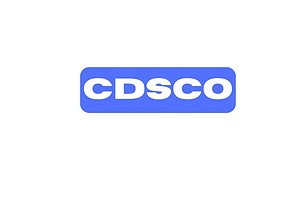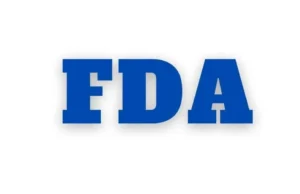Last Updated on December 22, 2024 by The Health Master
Drug Approval
In the ever-evolving landscape of the pharmaceutical industry, the USFDA’s (US Food and Drug Administration) remote regulatory assessment (RRA) is poised to be a game-changer. This innovative approach aims to streamline the drug approval process for new drugs and medical devices, ensuring a time-bound manner without compromising safety.
As the global regulatory authority seeks feedback on its draft guidance titled ‘Conducting Remote Regulatory Assessments,’ the Indian pharmaceutical industry is optimistic about the positive impacts it could bring.
Understanding Remote Regulatory Assessments
1. The Genesis: A Response to the Pandemic
The genesis of RRA lies in the challenges posed by the Covid-19 pandemic.
The need for timely drug approval prompted the USFDA to introduce virtual assessments, allowing for a comprehensive evaluation of production plant compliance with applicable USFDA requirements.
2. Digital Technologies and Their Role
Digital technologies played a pivotal role in the remote conduct of inspections during the pandemic.
However, concerns have been raised about the efficacy of virtual meetings in terms of information sharing.
Postponements occurred due to personnel absence, leading to limited access to crucial documents.
The Evolution and Value of RRAs
3. USFDA’s Recognition and Expansion Beyond the Pandemic
Despite initial challenges, the USFDA recognizes the value of RRAs and advocates their use for scenarios beyond the Covid-19 pandemic.
The draft guidance seeks to address industry queries and enhance understanding, fostering a collaborative approach between regulatory authorities and the pharmaceutical sector.
4. Efficiency and Transparency
According to the Indian pharmaceutical industry, RRAs are a welcome advancement.
They are not only time-saving but also enhance efficiency by minimizing the need for extensive manpower and streamlining documentation submission.
The potential benefits include increased transparency, accountability, and the trust of global regulators.
5. Positive Industry Response
Pharma consultant Kaushik Desai views RRAs as a positive learning experience from the challenges faced during the pandemic.
The efficiency gains are expected to expedite processes within the pharmaceutical industry, ultimately benefiting stakeholders and end consumers.
RRAs in Practice
6. Pre-submission Mandates and Record Submission
In some instances, global regulatory enforcement mandates the submission of records before live remote interactions or inspections.
These may include records related to the Foreign Supplier Verification Programme (FSVP) and voluntary RRAs involving remote requests for interactive evaluations.
7. Data-Driven Approach and Deviation Identification
Regulatory agencies are increasingly adopting a data-driven approach to RRAs.
This involves data analytics to identify deviations and ensure compliance.
Large Indian pharmaceutical companies express readiness for RRAs, while medium-small enterprises may face a learning curve due to the inherently data-centric nature of the process.
Future Outlook and Regulatory Considerations
8. Continued Role Post-Pandemic
While some regulatory agencies are evaluating the feasibility of remote approaches, the USFDA emphasizes that RRAs could continue as a valuable tool in the inspection toolkit of regulatory authorities post-pandemic.
9. Transparency and Stakeholder Engagement
USFDA’s use of various tools for oversight underscores the importance of transparency.
RRAs have not only identified deficient practices but also informed future inspection planning, promoting timely drug approval and authorization of marketing submissions.
10. Valuable Insights for Stakeholders
RRAs have proven to be a valuable source of information, leading to regulatory actions and supporting timely drug approval.
The USFDA’s determination to continue RRAs reflects their commitment to protecting public health and ensuring compliance across all regulated products.
Readiness of the Pharmaceutical Industry
11. Large vs. Small Enterprises
While large Indian pharmaceutical companies express readiness for RRAs, medium-small enterprises may face challenges due to the data-driven nature of the process.
The industry as a whole acknowledges the need for adaptation to fully leverage the benefits of RRAs.
12. Data-Driven Process and Analytical Challenges
The data-driven nature of RRAs presents challenges for some enterprises, requiring a shift towards a more analytical mindset.
Overcoming these challenges is crucial for the industry’s future readiness and compliance.
The RRA Process
13. Ordinary Preparation and Reporting
As part of the RRA process, the USFDA aims to prepare a detailed report consisting of a narrative and supporting documents.
This report communicates the summary of information reviewed, conditions and practices found, and any observations identified during the assessment.
Disclaimer: This article contains information derived from the source mentioned below. Our team utilized an AI language model to rewrite and present the news or article in a unique format.
FAQs
- Are RRAs only applicable during a pandemic?
- No, the USFDA acknowledges the value of RRAs beyond the pandemic and considers them a valuable tool for various scenarios.
- How do RRAs contribute to transparency in the pharmaceutical industry?
- RRAs provide valuable insights into industry practices, leading to informed regulatory decisions and enhancing overall transparency.
- What challenges do small enterprises face in adopting RRAs?
- Small enterprises may face challenges in adapting to the data-driven nature of RRAs, requiring a shift in their approach and mindset.
- What role do digital technologies play in RRAs?
- Digital technologies enable the remote conduct of inspections, but concerns exist regarding information sharing during virtual meetings.
- How does the USFDA ensure compliance during RRAs?
- The USFDA mandates pre-submission of records and utilizes data-driven approaches to identify deviations, ensuring compliance with regulations.
Unlocking the Potential: Boosting India’s Medical Device Industry
The Urgency of Expiry Dates on Doctors’ Prescriptions
NPPA’s move to Fix Prices on Anti-Diabetic FDCs
Changes in Homoeopathy Drug Regulations
FSSAI: Food Labelling and Display – Chapter-1
Laboratory Waste Management, Types and Its Disposal
How to Become a Skilled Manufacturing Chemist in the Pharma Industry
Unlocking Efficiency: Online Systems in Drug Regulation
Under Scrutiny: The Safety Evaluation of 3 Widely Used Pain, Cough and Cold Drugs
For informative videos by The Health Master, click on the below YouTube icon:
For informative videos on Medical Store / Pharmacy, click on the below YouTube icon:
For informative videos on the news regarding Pharma / Medical Devices / Cosmetics / Homoeopathy etc., click on the below YouTube icon:
For informative videos on consumer awareness, click on the below YouTube icon:












